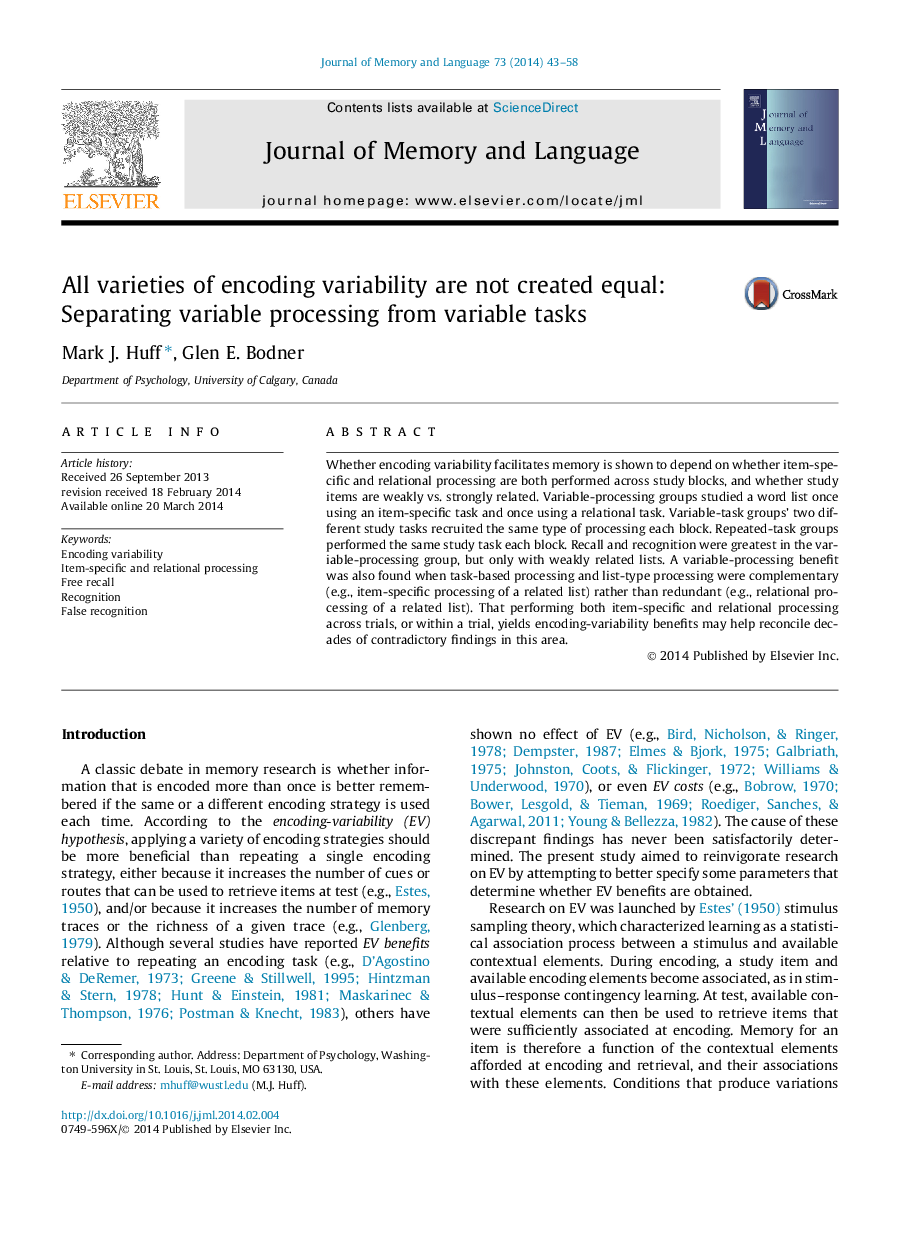| Article ID | Journal | Published Year | Pages | File Type |
|---|---|---|---|---|
| 931859 | Journal of Memory and Language | 2014 | 16 Pages |
•We compare encoding variability types based on processing types and task types.•We compare encoding variability effects on strongly and weakly related study materials.•Combinations of task processing and list structure can be complimentary and improve memory, consistent with the materials appropriate difficulty (MAD) framework.
Whether encoding variability facilitates memory is shown to depend on whether item-specific and relational processing are both performed across study blocks, and whether study items are weakly vs. strongly related. Variable-processing groups studied a word list once using an item-specific task and once using a relational task. Variable-task groups’ two different study tasks recruited the same type of processing each block. Repeated-task groups performed the same study task each block. Recall and recognition were greatest in the variable-processing group, but only with weakly related lists. A variable-processing benefit was also found when task-based processing and list-type processing were complementary (e.g., item-specific processing of a related list) rather than redundant (e.g., relational processing of a related list). That performing both item-specific and relational processing across trials, or within a trial, yields encoding-variability benefits may help reconcile decades of contradictory findings in this area.
